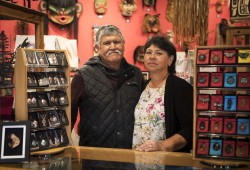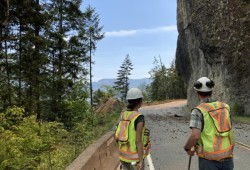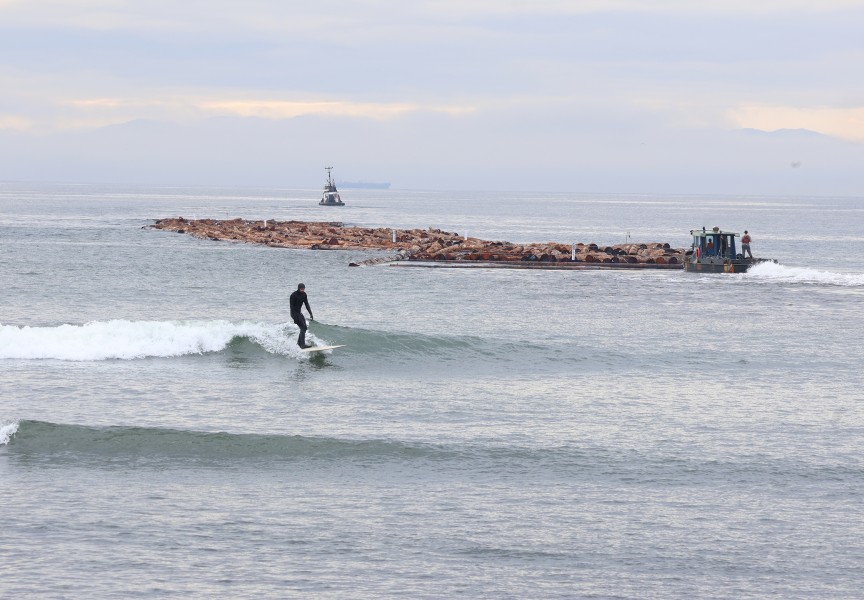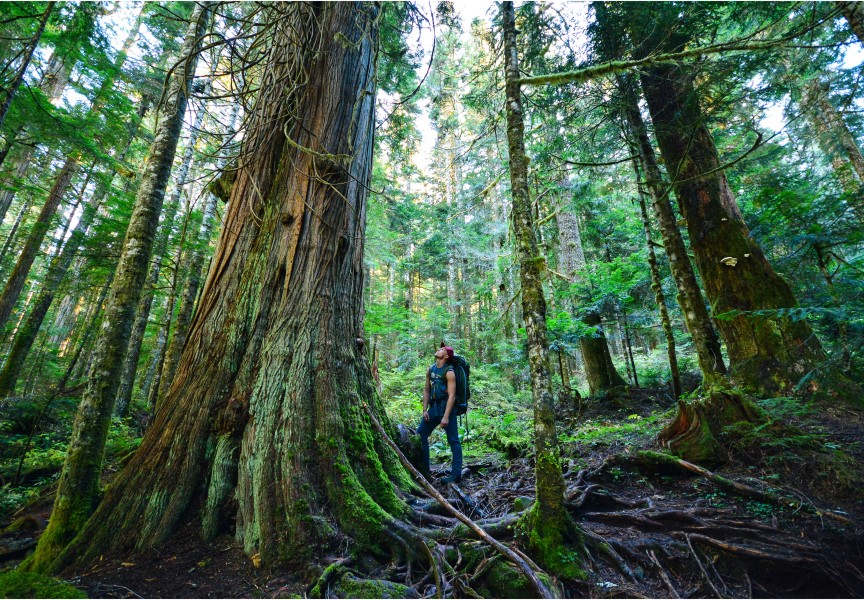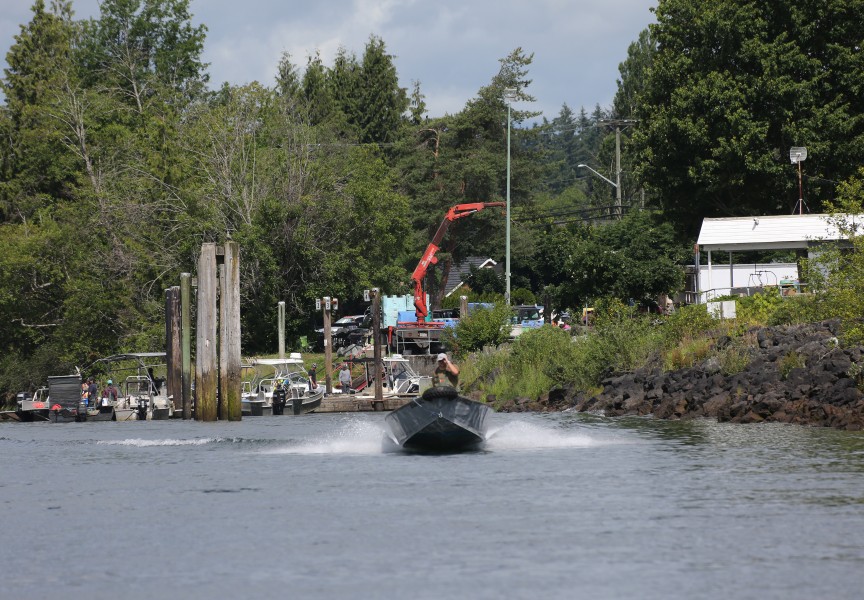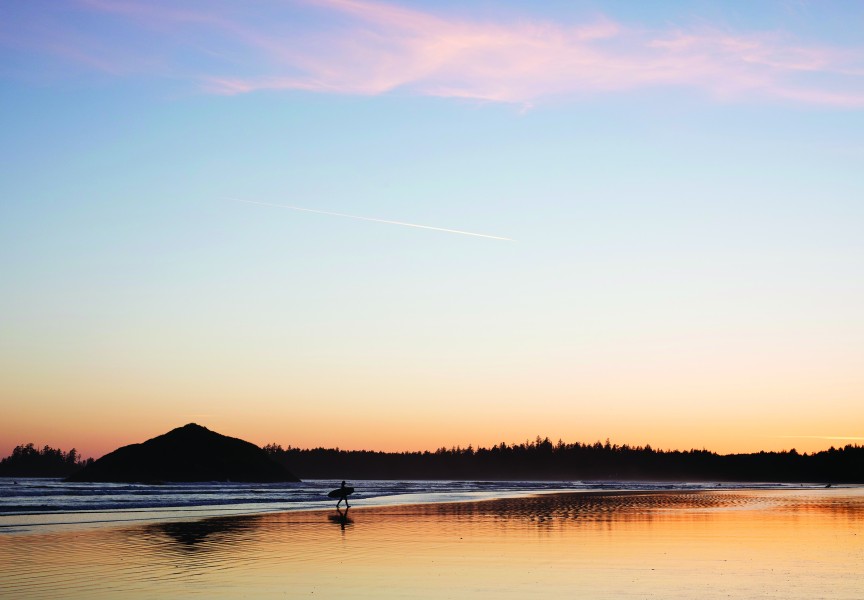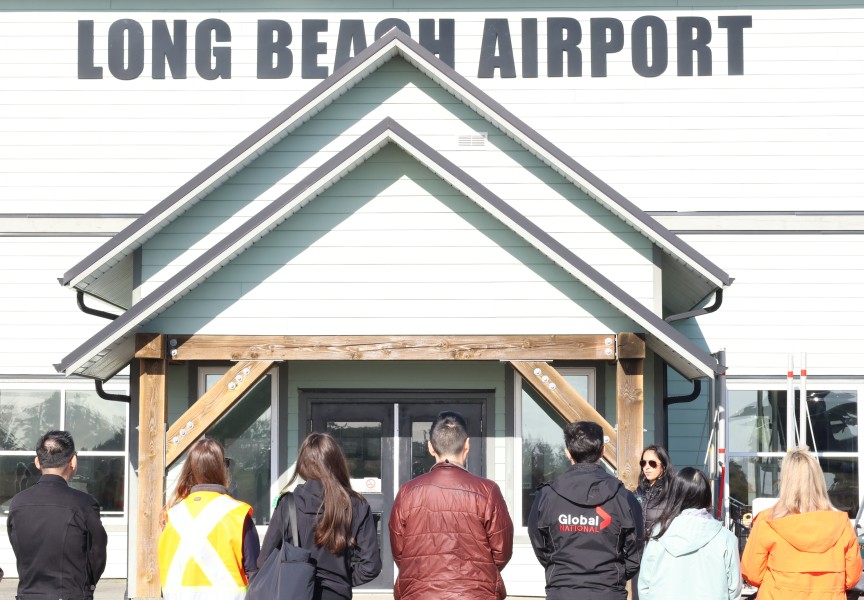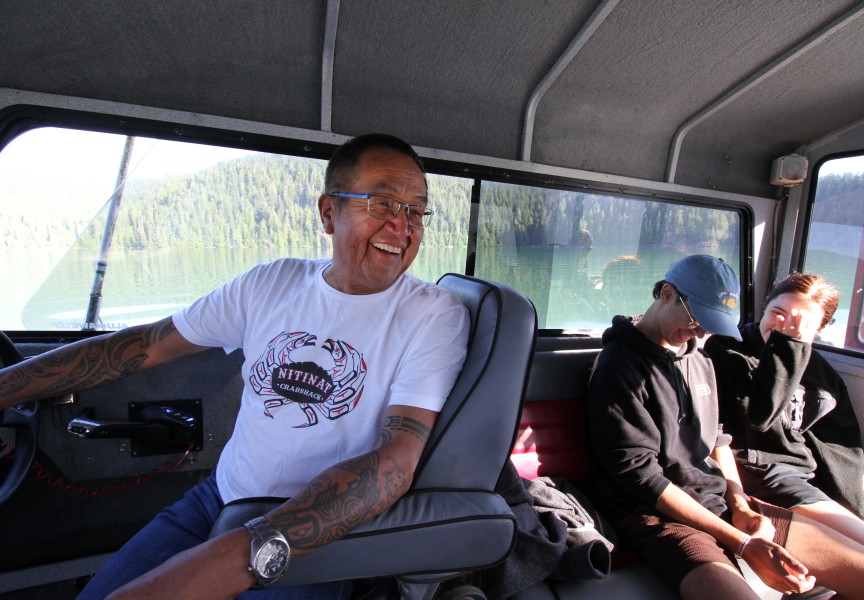After years of travel delays from the Kennedy Hill project, Tofino businesses had just gotten accustomed to an uninterrupted highway passage to their west coast town this spring, when the Cameron Bluffs wildfire hindered tourism to the destination.
The cliffside straightening and widening of the section of Highway by Kennedy Lake went millions of dollars over budget, but was finally completed this spring after more than five years of construction and blasting. But as the resort town’s businesses were gearing up with staff and inventory for what was expected to be their recovery season, a forest fire emerged east on Vancouver Island by Cameron Lake, shutting off highway access to Port Alberni and Clayoquot Sound as of June 6.
“This is really our runway summer that we saw as being able to bring some of these businesses back into positives,” said Laura McDonald, president of the Tofino-Long Beach Chamber of Commerce. “Everyone is doing their best, but it’s a very difficult time.”
In June the Best Western Tin Wis Resort, which is owned by the Tla-o-qui-aht First Nation, would normally have an 85 per cent occupancy rate, but this has dropped to less than 30 since Highway 4 was closed at Cameron Lake. General Manager Jared Beaton saw the change on the first day of the highway shutdown.
“We went from an evening that was scheduled to be 95 per cent occupancy, and we dropped down to 32 the day of the road closures. It’s been the same ever since,” he said, noting the tourism slowdown brought on during the pandemic when people were discouraged from travelling outside their community. “It’s COVID all over again.”
As the co-owner of the House of Himwitsa gallery, fish store and lodge, Cathy George has seen Tofino’s ups and downs over the business’ 33 years of operations. This latest slowdown also reminds her of the pandemic that local businesses are still recovering from.
“It’s extremely slow,” she said. “It reminds me a lot of when COVID hit, it just got really, really quiet. But we’re finding enough to keep our staff busy.”
As employees engage in maintenance duties to prepare the business for when things will pick up again, the lodge has faced a succession of cancellations in the month before municipal taxes are due.
“We lost all of our June bookings, that was quite an impact to us, especially with tax season coming up really quickly,” said George. “We depend on those dollars to make sure that we cover our taxes.”
The day after Highway 4 was closed a detour route was set via logging roads from Lake Cowichan to Port Alberni, a bumpy and dusty passage expected to add an extra four hours of travel time from the usual highway. But this route is designated for essential travel only, a route intended for the movement fuel and provisions to Port Alberni and the region’s west coast communities.
McDonald has found the province to be unwilling to move from this stance during recent conversations.
“The government has deemed it for essential travel only,” she said. “We did try to discuss with them a possible change in that language, but they’re pretty adamant - and I think for good reason. We also want to be respectful of the road through our First Nation communities, there is also fire risk through there.”
Even so, some travelers have braved the detour route to proceed with their plans for Tofino and other west coast destinations.
“There’s the odd person that is coming through, they’ll take the highway,” said Beaton. “It depends on where they’re from, if they’re from out of province and they’re used to these types of roads, it’s no problem for them.”
“The challenge that we’re now facing is that the RCMP are allegedly starting to turn people away saying that it’s not deemed essential travel,” he added.
This could not be confirmed with the RCMP, but McDonald notes that uncertainty continues on who exactly has the right to use the detour route.
“The language has been evolving as the situation has been evolving,” she said. “It sounds like prepared travelers are accessing the area.”
Others are flying into the nearby Long Beach Airport. Harbour Air and Pacific Coastal have increased their daily flights from one to two, three of four, said McDonald.
“I know that Central Mountain Air is trying hard to get more aircrafts out this way to assist in accommodating, but it will never be anything close to what is needed,” added Beaton.
This is the first season for Ahous Adventures, a tour operator recently bought by the Ahousaht First Nation. Ahous opened on May 15, three weeks before the highway shut off most of Tofino’s tourist traffic, offering whale and bear watching tours in Clayorquot Sound, as well as day trips to Hot Springs Cove.
“We still have trips going out daily, we’re very fortunate to have strong walk-in business right now,” said Brent Baker, the operation’s assistant general manager. “We are a new operation, so we’re taking it day by day.”
Like other Tofino businesses, Ahous Adventures has had cancellations due to the highway shutdown, but most customers are still arriving by road despite the difficulty of the detour route.
“We have experienced some cancellations, but at this point we still have a flow of people coming through the doors, and our staff are working extra hard to make the very most of every opportunity we have to show somebody the west coast,” said Baker.
After businesses prepared for maximum traffic at the beginning of the summer, the highway closure has resulted in layoffs. Many people who are temporarily out of work during the slowdown are having difficulty getting assistance from employment insurance.
“We’re also struggling with layoffs, the EI program really doesn’t work for these types of situations,” said McDonald. “The businesses were ready and looking for a strong tourist season. This is not how they wanted the season to kick off, but difficult choices do need to get made in these circumstances, and layoffs is unfortunately one of them.”
So far, the province has focused on providing resources to fight the Cameron Bluffs wildfire and making the highway along Cameron Lake safe to use again for its planned reopening June 24, while ensuring that essential supplies get through on the detour route. During a press conference on Tuesday, June 13 Rob Flemming, minister of Transportation and Infrastructure, responded to questions about the highway shutdown’s effect on tourism.
“We’ll do our best, as we have doing, to get all of the goods and materials and suppliers and contractors to those communities to prepare a tourism season that still lies ahead of us - and to make sure that they have all the accurate information to plan for the reopening of the highway,” he said.
“The conversations have begun,” said McDonald about support from the province for west coast businesses.
When the highway reopening was first announced, the plan for a single-lane alternating passage along Cameron Lake was described as being for essential travel only, but this language has since been changed, noted McDonald.
“We were very excited to see the clarification around the non-essential travel not applying to the single-lane situation on Highway 4 on June 24,” she said. “It will be open to anyone on June 24.”

